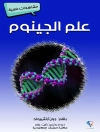The mapping of human genes is proceeding rapidly. Genes associated with specific inherited diseases are being identified, often providing insight into the molecular cause of the disease. At the moment, however, little consideration is being given to the variation present in different human populations. Variation in the Human Genome discusses methods of analysing population genetic data and how contemporary genetic heterogeneity arises during the evolution and migration of human populations. Specific disorders such as cystic fibrosis, beta-thalassaemia, fragile X, phenylketonuria and tumour development susceptibility are used to illustrate this genetic variability and mechanisms of gene mutation and evolution.
Tabla de materias
Partial table of contents:
Phyogeographic Variability in Traditional Societies (R. Ward
& D. Valencia).
Interpreting Genetic Variability: The Effects of Shared
Evolutionary History (P. Donnelly).
Microsatellites: Evolution and Mutational Processes (N. Freimer
& M. Slatkin).
Genetic and Geographical Variability on Cystic Fibrosis:
Evolutionary Considerations (J. Bertranpetit & F.
Calafell).
Population Genetics of Tumours (W. Bodmer & I.
Tomlinson).
World Distribution of HLA Alleles and Implications for Disease
(J. Bodmer).
The Genetics of Common Diseses: The Implications of Population
Variability (D. Weatherall).
Final Discussion.
Summary.
Indexes.
Sobre el autor
Derek J. Chadwick and Gail Cardew are editors for Variation in the Human Genome and other scientific titles.












